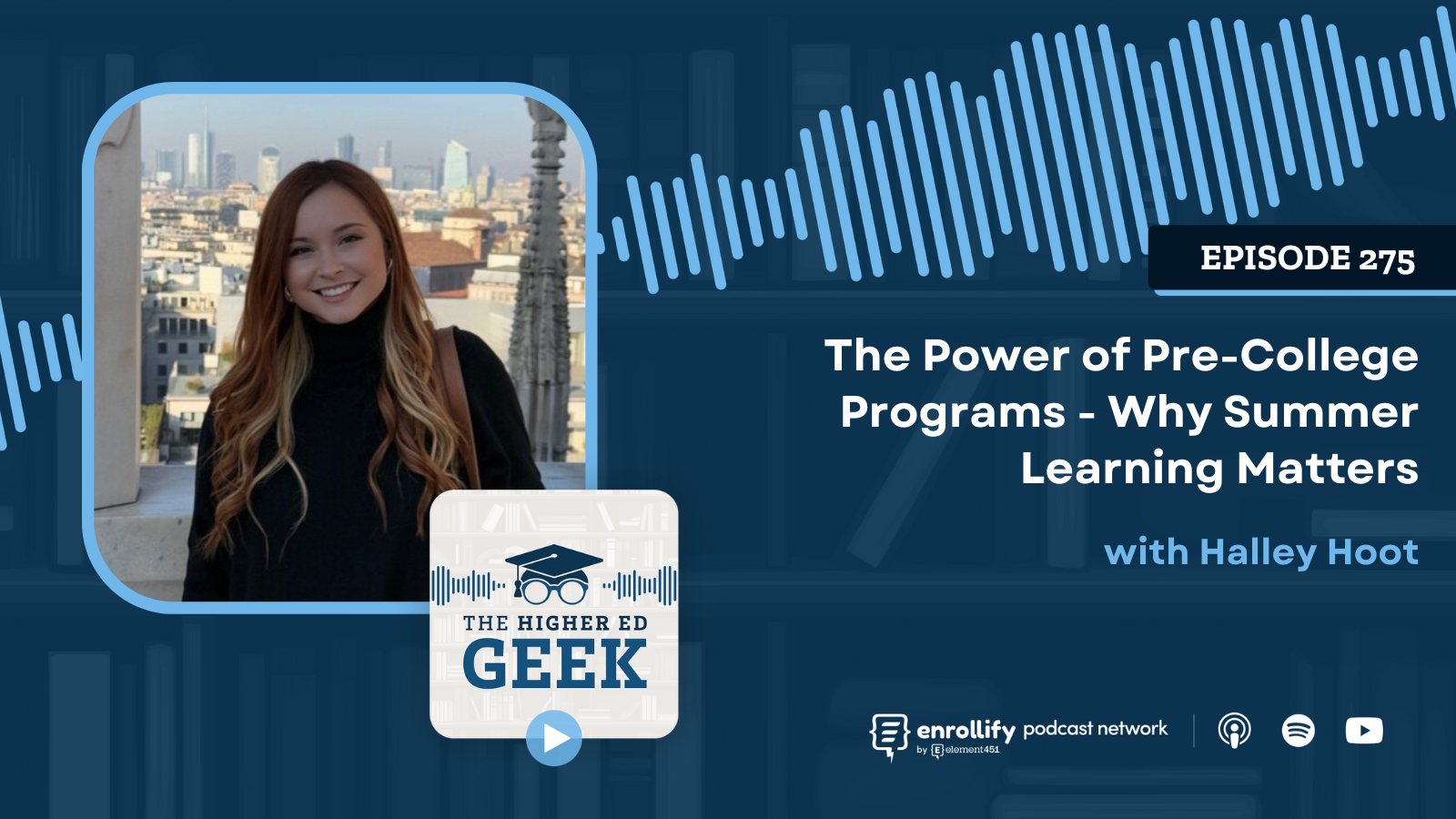About the Episode
In this episode of "Confessions of a Higher Ed CMO," Jaime and her guest dive into a critical aspect of leadership: managing conflict in the workplace. Her guest, Carol Bowser, is a true authority in conflict management, bringing her expertise from years of experience and her role as the founder of Conflict Management Strategies. With a background that includes notable contributions to the field and a wealth of practical knowledge, Carol offers invaluable insights into navigating conflicts effectively within the dynamic landscape of higher education. Takeaways include:
· Insights into the different types of conflicts that arise in the workplace
· Guidance on how to delve into the root causes of workplace conflict
· Tips for leaders on maintaining composure when faced with high-tension situations
· Ideas for turning conflict into opportunities for growth
· Advice for leaders on how to help employees do their best work
Episode Summary
Understanding the Root of Workplace Conflict in Higher Ed
Conflict is an inevitable part of any workplace, but in higher education, unique factors amplify the potential for tension. As Carol Bowser explains, many conflicts arise from unmet expectations, a lack of clear role definitions, and differences in communication styles. In higher ed, where roles range from tenured faculty to administrative staff, understanding the foundational causes of these issues is essential for leadership.
Carol suggests leaders can start by asking team members about their expectations of each other, which often unearths underlying miscommunications and misconceptions. Acknowledging these roots allows leaders to address conflicts at their source and provides a structured path for resolution, whether the issue stems from personality differences or procedural misunderstandings.
Tools and Techniques for Leaders Facing High-Stress Situations
Leaders facing tough decisions, such as staff layoffs or department cuts, must handle both their stress and the heightened emotions of their team. Carol advises leaders to avoid making promises regarding job security if outcomes are uncertain, as well as to allow team members space to express their concerns. Leaders can acknowledge employees’ fears and clarify that although they may not have immediate answers, they’re committed to supporting the team through changes.
Carol recommends a few practical techniques, such as maintaining calm and composure, offering tissues during emotional conversations to signal acceptance of emotions, and simply allowing team members to take a moment when emotions run high. Leaders can reinforce trust by staying present and listening empathetically, recognizing that emotions may escalate when employees feel their future is uncertain.
Embracing Diversity and Generational Differences in the Workplace
Diversity in higher ed settings includes generational, cultural, and experiential differences that shape how team members communicate and resolve conflicts. Carol discusses the importance of leaders understanding the communication styles of their team members, as well as recognizing the influence of organizational culture. For example, some cultures may value directness, while others rely on more indirect approaches, which can lead to misunderstandings if left unaddressed.
Leaders can foster a more cohesive environment by holding open discussions about these differences and setting clear norms that respect the diverse perspectives within the team. By asking team members to share experiences about when they felt most successful at work, leaders can gain insight into each person’s preferred working style and tailor conflict management strategies accordingly.
Building Conflict Management Skills as a Higher Ed Leader
Developing conflict resolution skills is essential for higher ed leaders. Carol encourages leaders to start by reflecting on their own attitudes toward conflict and by becoming aware of their personal “conflict story.” Leaders should work on building an emotional vocabulary to better understand their team’s concerns and create an environment where employees feel heard and supported.
Leaders are also encouraged to proactively observe their teams for signs of emotional distress or disengagement, such as decreased participation or lack of enthusiasm. Taking the time to identify patterns in behavior can help leaders address issues early, reducing the likelihood of small grievances escalating into larger conflicts. The process of managing conflict isn’t about eliminating tension altogether; it’s about creating an environment where healthy dialogue can take place and where team members feel empowered to communicate openly.
This episode is brought to you by our friends at Mindpower:
Confessions of a Higher Ed CMO is sponsored by our friends at Mindpower- a full-service marketing and branding firm celebrating nearly thirty years of needle-moving, thought-provoking, research-fueled creative and strategy. Mindpower is women-founded and owned, WBENC certified, nationally recognized, and serves the social sector – higher education, healthcare, non-profits, and more. The Mindpower team is made up of strategists, storytellers, and experience creators. From market research to brand campaigns to recruitment to fundraising, the agency exists to empower clients, amplify brands, and help institutions find a strategic way forward. Learn more about Mindpower here!
About the Enrollify podcast Network:
Confessions of a Higher Ed CMO is a part of the Enrollify Podcast Network. If you like this podcast, chances are you’ll like other Enrollify shows too!
Our podcast network is growing by the month and we’ve got a plethora of marketing, admissions, and higher ed technology shows that are jam packed with stories, ideas, and frameworks all designed to empower you to be a better higher ed professional. Our shows feature a selection of the industry’s best as your hosts. Learn from Mickey Baines, Zach Busekrus, Jeremy Tiers, CEddie Francis, Jaime Gleason and many more.
Learn more about The Enrollify Podcast Network at podcasts.enrollify.org. Our shows help higher ed marketers and admissions professionals find their next big idea — come and find yours!













.png)

